Summary of the Women & Youth Empowerment Workshop
by Felix F Silundika • Project Manager – TGSCCC
Let’s Revive Our Culture, Norms and Values. Great Things Start from Small Beginnings.
Summary of the Women & Youth Empowerment Project 2019
Date and Venue:
The workshop took place on Saturday 28th December 2019 at the TG Silundika Cultural Community Centre which is located at Gala Village, Ward 6-Bulilima District of Matabeleland South in Zimbabwe. Some of the workshop facilitators and the coordinators had met the day before to fine tune the agenda and coordinate facilitation.
Training Team
The members of the training team were:-
1. Ms Nomthandazo Tsambani – Dress Making
2. Ms Tracy Tshuma – Fashion Design
3. Mrs Angelina Ncube- Basketry and
4. Mrs Thethiwe Ncube -Bead Making but was unable to attend due to the bereavement of a close relative.
Agenda
Adjustments to the agenda were made in light of the beadmaking facilitator’s inability to attend. Those trainees who had registered for beadmaking were offered space in the training sessions that were available until such a time that their chosen skills can be rescheduled. The training team and the management committee in consultation with some of the trainees agreed on a draft agenda which was approved by all involved as follows:
08:30 Registration
09:00-10:00 Session 1. Welcome
Prayer/Introductions/Icebreakers/Expectations/Rules
TGSCCC Chairman/Project Manager/Village Head
Ntembezelo wehhula n’hingo
Hhugwa Kweongoloso Wehhuba
Mathama wewamutjila Banhu
10:00 Tea Break
10:30-12:30 Session 2. Group Work
- Introduction to Basket Weaving: Mrs Angelina Ncube
- Introduction to Beadmaking: Mrs Thethiwe Mncube
- Introduction to Fashion Design: Ms Tracey Tshuma
- Introduction to Dress-Making: Ms Nomthandazo Tsambani
12:30 Lunch Break
1:00-3:00 Session 3. Practical Training
Basket Weaving: Mrs Angelina Ncube
Beadmaking: Mrs Thethiwe Mncube
Fashion Design: Ms Tracey Tshuma
Dress-Making: Ms Nomthandazo Tsambani
3:00 Closing Session and Evaluation
3:30-4:00 Session 4. Certificate Presentation/Wrap up of Workshop
1:00-3:00 Session 3. Practical Training
Basket Weaving: Mrs Angelina Ncube
Beadmaking: Mrs Thethiwe Mncube
Fashion Design: Ms Tracey Tshuma
Dress-Making: Ms Nomthandazo Tsambani
3:00 Closing Session and Evaluation
3:30-4:00 Session 4. Certificate Presentation/Wrap up of Workshop
Participants
The first part of the program was attended by less than half of the 40 pre-registered participants due to the long distance that many had to walk to be on hand for the early morning start. Also present in the openning session were the centre management committee members, civic and traditional leaders as well as a delegation from a cultural centre in the neighboring country of Botswana.
The Training Workshop
The training session was opened with an ice-breaker by the centre chairman Mr Mfundo Tsambani which required the participants and the trainers to introduce themselves. The chairman went on to lay down the rules for participating in the workshop. This was followed by a video presentation about a model project in Rwanda that has raised the income of one village from $0 to more than $1 a day through the sales of baskets that were woven locally and sold in markets as far away as the United States. The participants were then divided into small groups and ushered to their training area where they spent 6 hours learning theory, producing wares and creating designs.
Outcomes of the Training Workshop
At the conclusion of the 6 hour long workshop, the participants agreed on a framework for continuing their training. The basketry group will henceforth meet twice a month at the TGSCCC and continue to produce high quality baskets in the same model as the Rwanda initiative. The fashion design and sewing groups will meet on the same timelines and work towards creating garments for the Miss
TiBaKalanga Beauty Pageant contestants. The proceeds from the sale of all wares will be divided between each trainee and the centre.
Recommendations
Based on a brief and informal assessment by the trainers, we present the following recommendations:
- To continue mobilizing resources for the procurement of much needed equipment such as sewing machines, tables and chairs
- To build the capacity of the trainers in order that they can deliver effective training
- To maintain a catalogue and keep accurate records of wares produced at the centre
- To introduce entrepreneural and marketing skills training workshops to prepare the trainees to become independent business persons
- To mobilze resources for the construction of gazebos to accomodate workshops and group meetings
- To have a mechanism for follow-up on the outcomes of all skills training at the centre
- To launch a scout marketing campaign and promode local products abroad: in Europe, Asia and the Americas

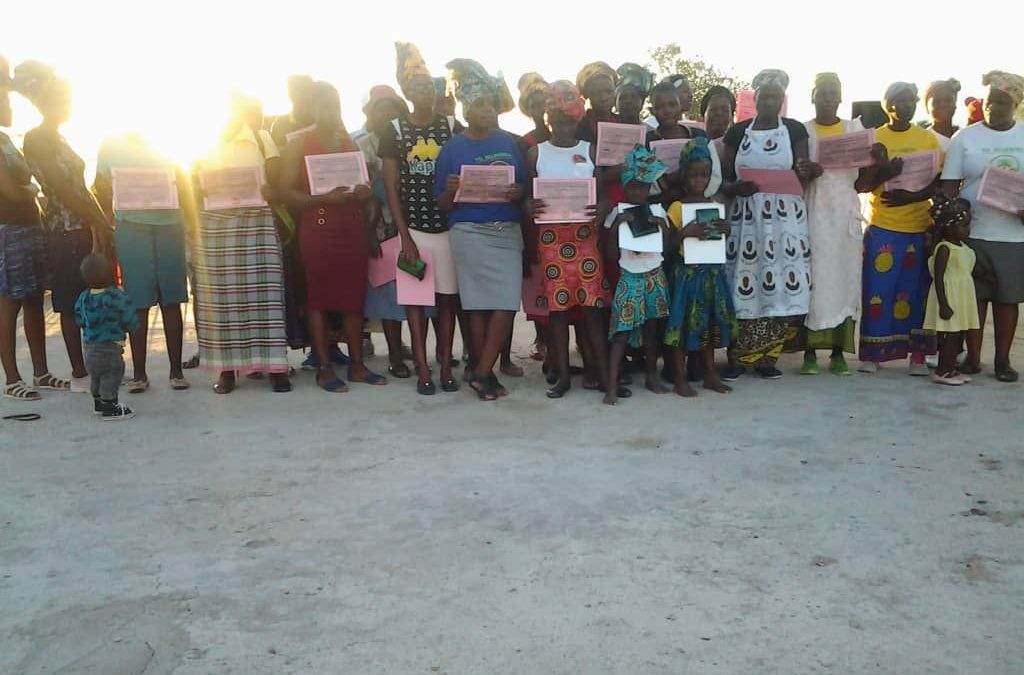
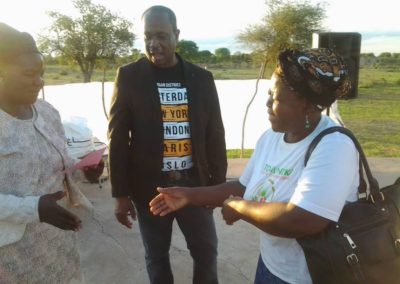
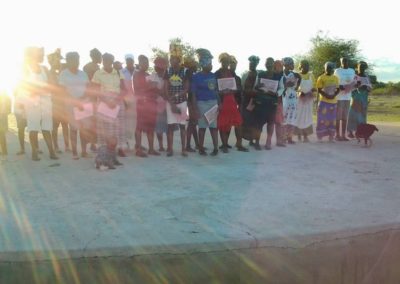
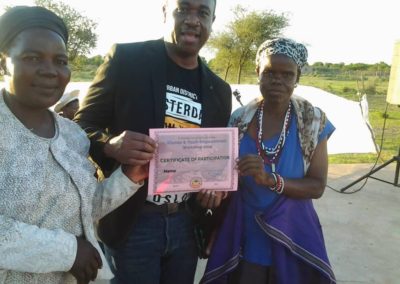
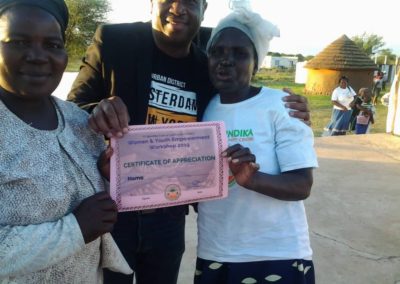
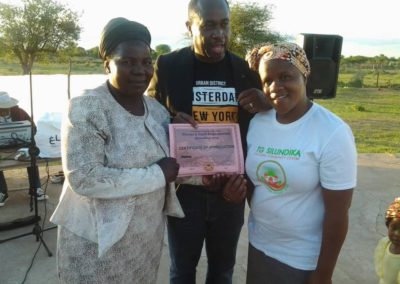
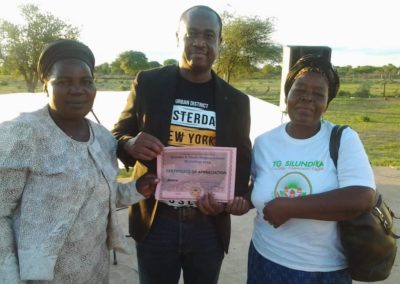
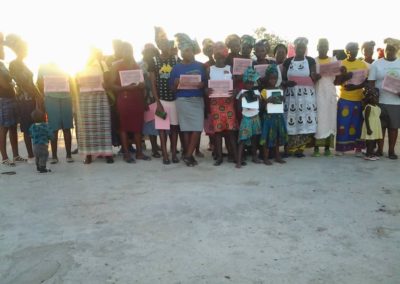
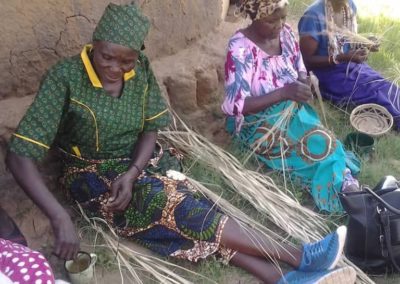
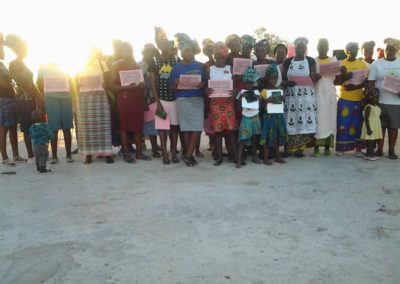
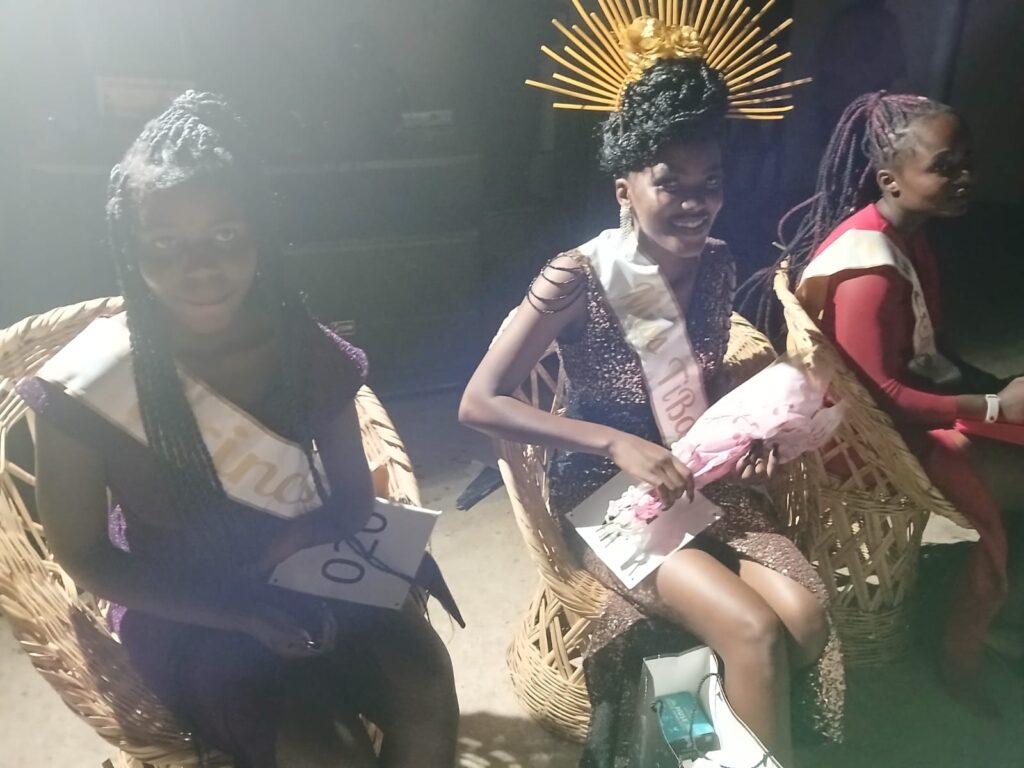

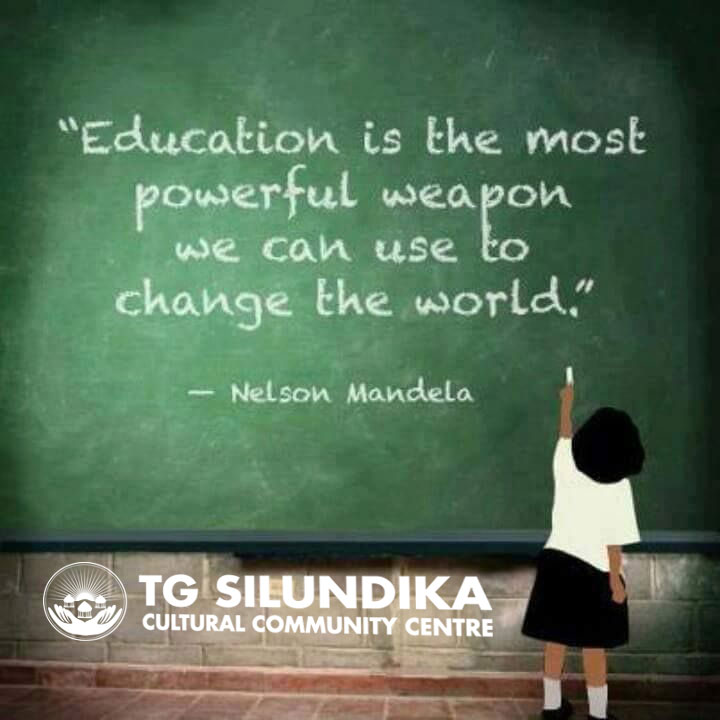
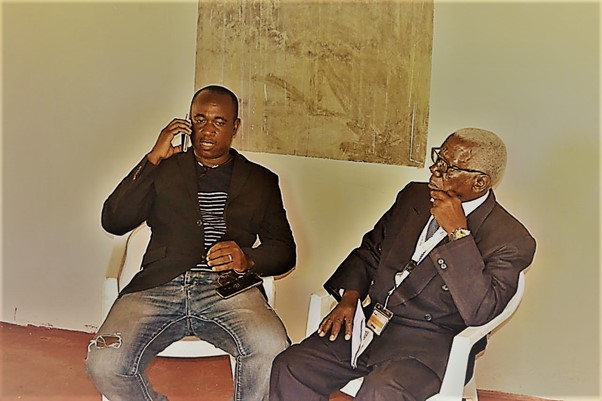
Comments